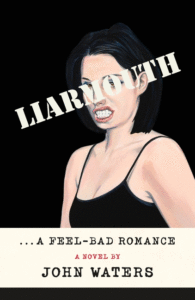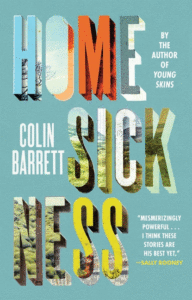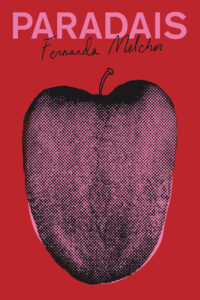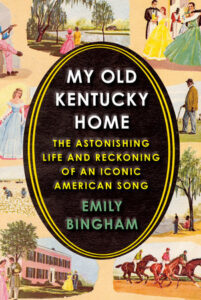
This week’s cavalcade of compelling reviews includes Molly Young on John Waters’ Liarmouth, Anne Enright on Colin Barrett’s Homesickness, Erin Somers on Jennifer Egan’s The Candy House, Juan Gabriel Vásquez on Fernanda Melchor’s Paradais, and Rick Bragg on Emily Bingham’s My Old Kentucky Home.

“If Liarmouth had a plot, this would be the inciting incident. Instead, the novel unfurls as a tangled ribbon of manic events untouched by the logic of cause and effect … You don’t go to the films of John Waters for a tidy three-act structure, and you don’t go to his essays for elements locking into place with the organizational splendor of a magic square. Naturally, there are qualities you shouldn’t seek in his fiction either. These include understated punctuation, expressions of interiority and sociohistorical breadth … Like all novels, this one is bounded by the subjectivity of its creator. But Waters doesn’t even bother to throw his voice; every character thinks and speaks exactly like the author. This move only works, as it does here, in rare cases … crotch punching, exploding televisions, geysers of blood, deviants, wackos and reprobates … Waters writes toward the funny bone and the gag reflex. He is not at the mercy of political correctness or good taste or spelling conventions. Like any true weirdo, he seems to consider himself normal. When you read a book like this, you’re wandering into a maze of anarchy that is fully legible only to its creator … For real strangeness in novels, you usually have to voyage to lands that still tolerate the obdurate, the sleazy, the resentful, the offline and any other attributes presently considered unmarketable. Liarmouth is a good novel. It is a better gateway drug.”
–Molly Young on John Waters’ Liarmouth (The New York Times)

“In its highest style, the work fits into a tradition that moves through Kevin Barry and Marina Carr back to the epic tales of old Ireland, a mode that shifted from the heroic into the mock-heroic in the work of Joyce and Flann O’Brien … I don’t think it is too strong to say that Barrett’s work hit an inflection point in Irish culture … To be a male writer in those years must have required a kind of double vision, a tally of what might be lost and what could be gained. This is more problematic in a tradition so interested in loss, and how men in particular deal with the hurt of dispossession … A real writer (no small compliment, here) meets all this. He lets the changing moment sink in and settle, and inform what comes next … Barrett is already one of the leading writers of the Irish short story, which is to braggingly say, one of the leading writers of the short story anywhere. He means every word and regrets every word. He just kills it.”
–Anne Enright on Colin Barrett’s Homesickness (The Guardian)
“The Candy House’s narrative is a web of connections, and the threads between them are gossamer thin. Egan’s attention to each of her subjects’ motivations can seem glancing. The novel doesn’t probe in. The reader who neglects to revisit Goon Squad will find herself adrift in a sea of hazily remembered figures doing things that seem loaded with significance, but unable to recall the referents … One can turn these questions over and over in one’s head. I did, but then I gave up. It’s not clear what the experiment is trying to do. It’s a feint toward the problems of technology and their human costs without displaying full understanding of them. Posting on Twitter is not making people robotic or less communicative. The opposite is true. If anything, the platform, at its worst, breeds logorrhea, overfamiliarity, an unwholesome desperation to participate and be liked … The flashes of humanity are absent here, yet the work asks its readers to be moved by its baffling web of characters. It asks its readers to be wowed by the inventiveness, the virtuosity, of these connections. But we are not all connected in the way that The Candy House proposes—not, at least, in the hyperliteral ‘six degrees of Kevin Bacon’ sense … Instead, the novel misses what does connect us. Birth, death, love, regret, suffering, family, courage, sex, humor, sickness, sensory pleasure, embarrassment, longing, and on and on.”
–Erin Somers on Jennifer Egan’s The Candy House (The Nation)

“…for decades, Latin American novelists have claimed Faulkner as one of their own, finding in his fiction—in its exploration of a problematic history, in its use of lore and myth, in its formal inventiveness—a key to the interpretation of their world. That’s evident in the Mexican novelist Fernanda Melchor’s astonishing Hurricane Season, which, in 2020, became her first novel to appear in English, and now in its successor, Paradais, both translated by Sophie Hughes. With a nimble command of the novel’s technical resources and an uncanny grasp of the irrational forces at work in society, the books navigate a reality riven by violence, race, class, and sex. And they establish Melchor, who was born in 1982, as the latest of Faulkner’s Latin American inheritors, and among the most formidable … Such is Melchor’s world. The scene is contemporary, but the atmosphere is unmistakably gothic; events here have a mythic quality, and hearsay, rumor, and gossip, filtered through the narrative voice, are our only access to the ambiguous truths of these lives … She isn’t holding a Stendhalian mirror up to Mexican society; she’s dissecting its body and its psyche at the same time, unafraid of what she might find … Like its predecessor, Paradais is a portrait of an ailing society inured to its own cruelty, and employs long paragraphs and supple sentences, always alive to the rhythms of speech … Melchor seems fascinated by the gratuitousness of violence, by the absence of any sense of responsibility … In Melchor’s world, there’s no resisting the violence, much less hating it. All a novelist can do, she seems to suggest, is take a long, unsparing look at the hell that we’ve made.”
–Juan Gabriel Vásquez on Fernanda Melchor’s Paradais (The New Yorker)

“It is an old, old song, written in a discredited age and made infamous in blackface, but every spring it rises from the bluegrass and bad hats and bourbon fog, and the people of the Commonwealth sing it alive again. As the beautiful racehorses stomp and shy toward the starting gate, a marching band sounds across the storied turf of Churchill Downs and 150,000 rise to sing a song about a slave torn from his wife and children and sold downriver to Louisiana, into an even deeper hell. And they begin to weep, a lot of them, not because of the evils of chattel slavery, but because that old song, its lyrics and very meaning altered and whitewashed over time, is such a part of their sense of place, of home, that they hear something else. People who love the song say there is, in that moment, a kind of serenity, a sweet longing for something lost over the passing years, even if they cannot put into words what that something is. How this came to be, how the song so captured these people and a wider world, is the haunting question that the native Kentuckian Emily Bingham answers so thoroughly and forcefully in My Old Kentucky Home, her history of an American song.”
–Rick Bragg on Emily Bingham’s My Old Kentucky Home (The New York Times Book Review)

